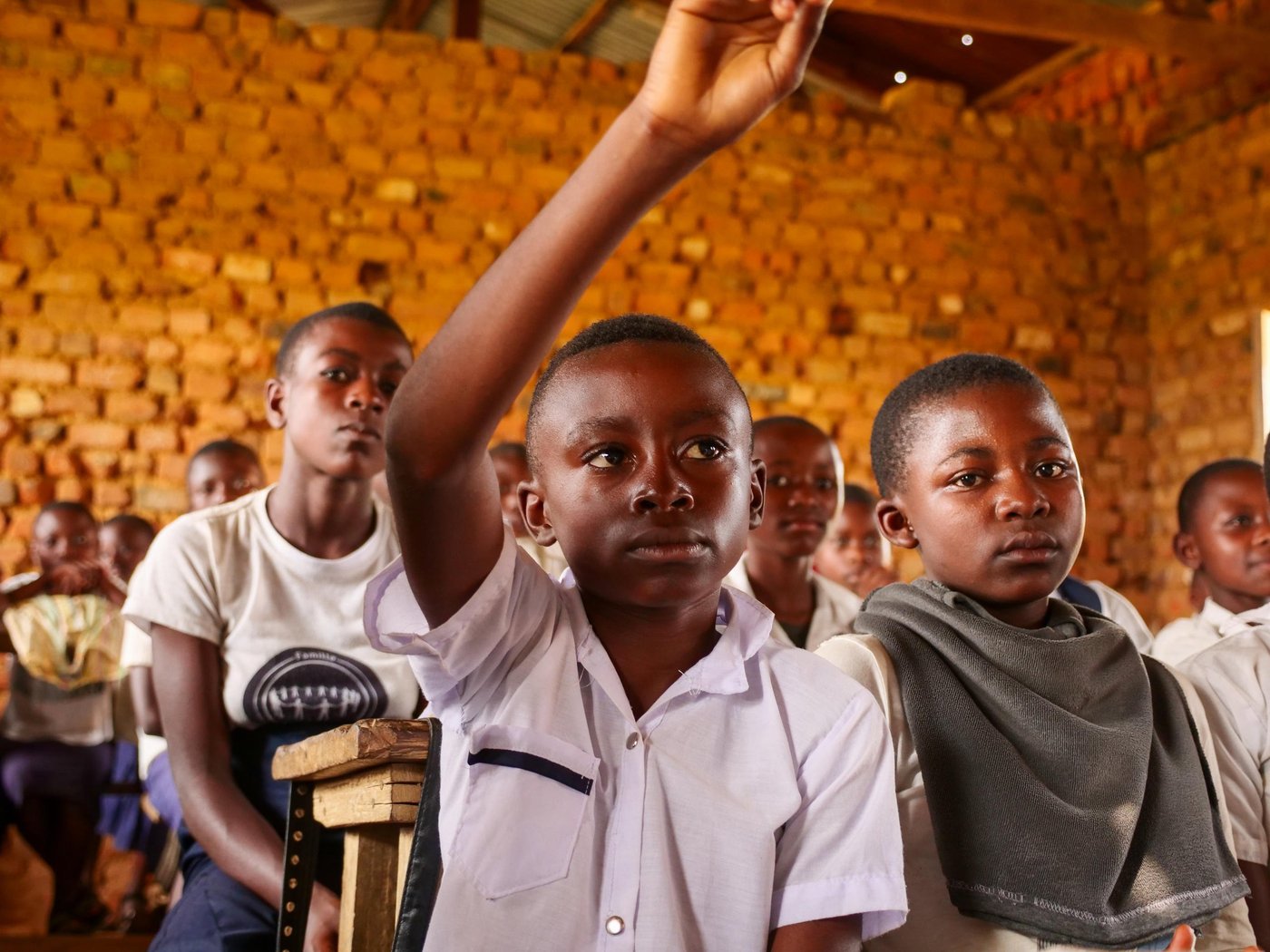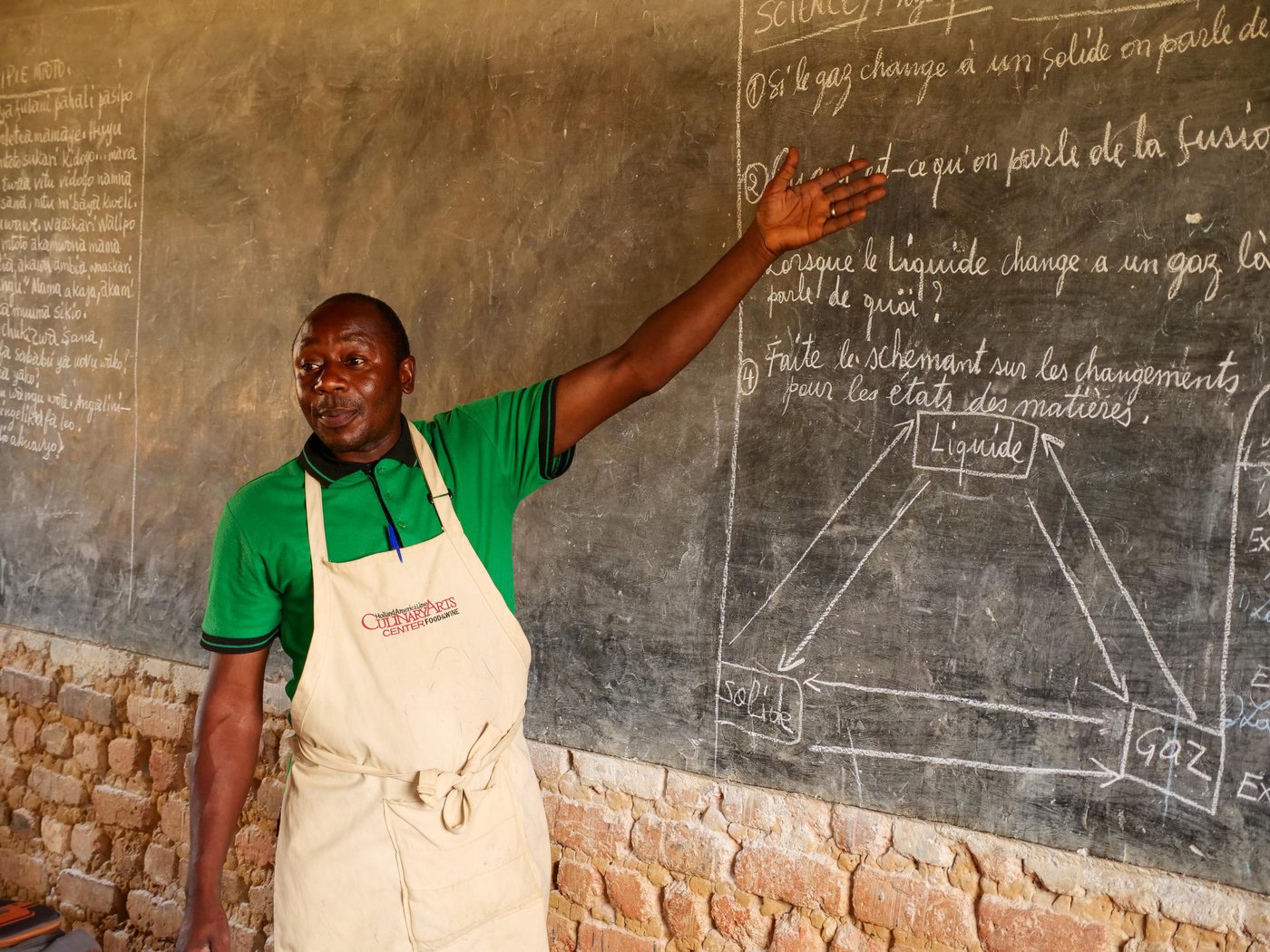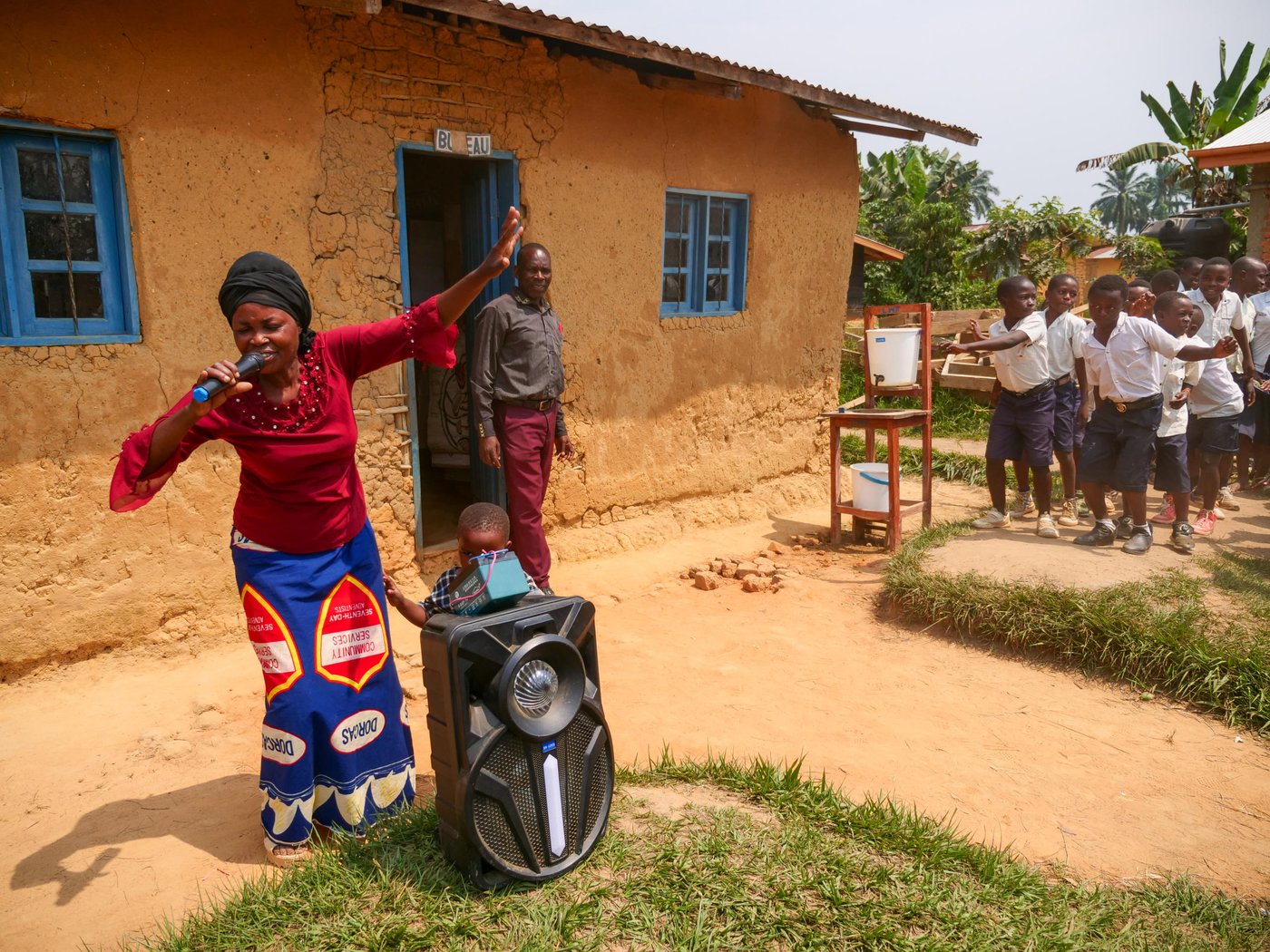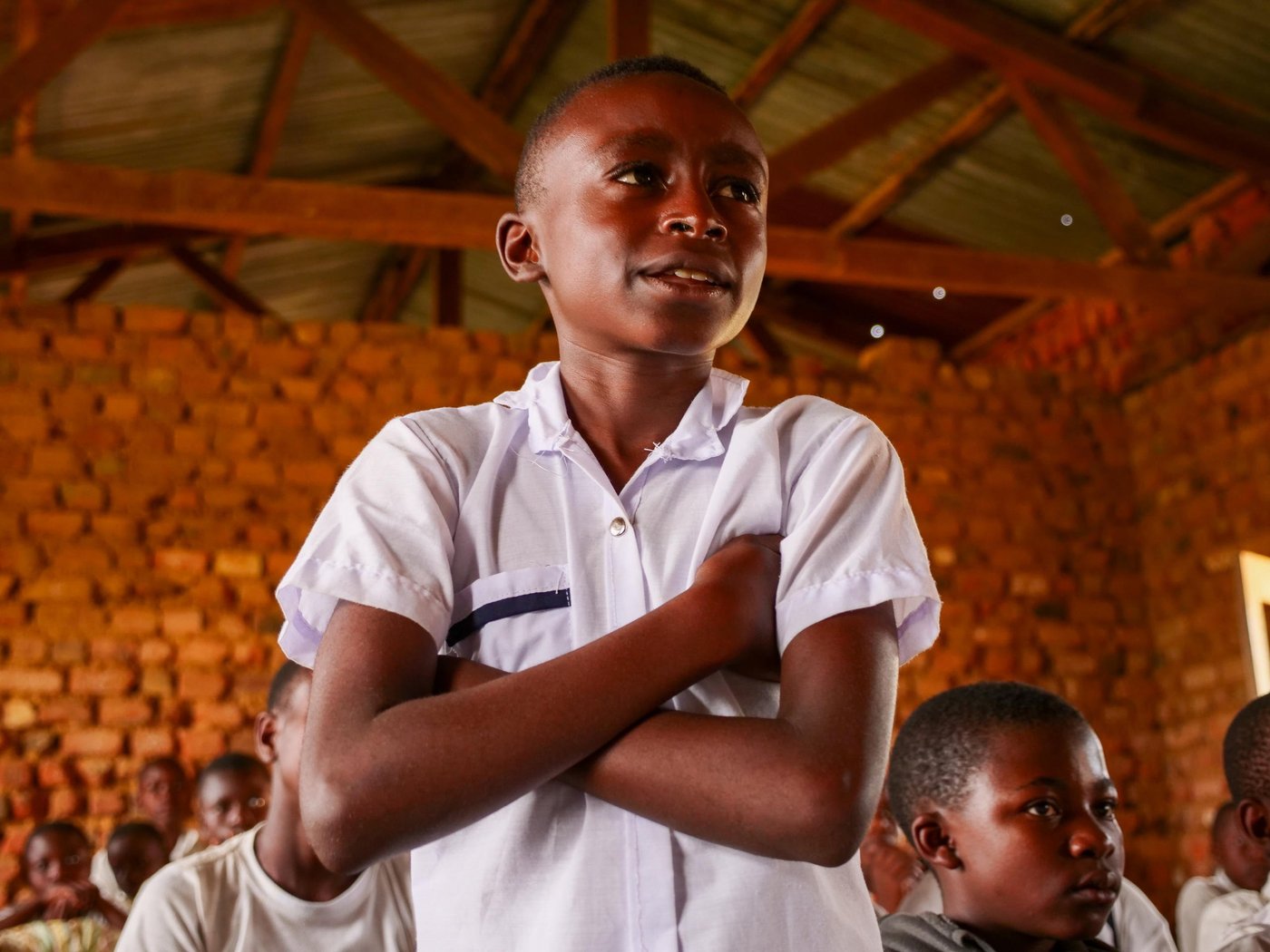Science class
“What do you call the change of state from liquid to gas?” the teacher asks his sixth grade class. But it is a waste of time – the 50 or so children are distracted by our presence and our camera. Only Beltenique, unperturbed, leaps to his feet, hand outstretched towards the sky. “Evaporation!” he says.
At 14, Beltenique is a bright, focused and ambitious teenager. He dreams of becoming a pilot, and the work involved does not scare him.
Beltenique has already experienced real fear. For more than two decades, DR Congo has been experiencing one of the world’s most complex and forgotten crises. With 7.2 million people affected by displacement, including 4.2 million children, it is the second largest displacement crisis in Africa. Children are the worst affected. Malnourished or undernourished, out of school, and at risk of all kinds of aggression, including sexual aggression, an estimated 15.4 million children need humanitarian assistance.
[1] Democratic Republic of the Congo: Internally displaced persons and returnees, March 2024

Sleeping under the stars
One night in December 2022, Beltenique had to flee with his family after armed men attacked his village. “That night, we slept under the stars with my parents, my little brother and my little sister,” recalls the teenager. The family made several stops before arriving on foot in the town of Cantine, 75 km away and several days later.
Beltenique and his family initially stayed with a host family. Eventually, a villager offered them a small house that provided a little more comfort and privacy. To feed their children, Beltenique’s parents worked in the fields every day. Beltenique was often hungry. He had no change of clothes and no uniform to wear to school. He was out of school for three months, and still feels a strong sense of shame because of this period.
“Before the attack on our village, my parents had just harvested sacks of beans, cocoa and paddy rice [rice with its husk intact],” he says. “We left everything behind. When we arrived in Cantine, life was so difficult. We had nothing left! We were dirty and our clothes were torn. We were ashamed to go to church and ashamed to go to school.”
Leaving their old lives behind
His parents enrolled him at Pygmées Aloya Primary School. Beltenique timidly returned to school. “In our class, I didn’t talk to anyone,” he recounts. “I didn’t feel like playing with my classmates during break time. I felt crushed by my new life.”
His initial grades were mediocre. Once again, he felt ashamed, frustrated, and exhausted. But his teacher spotted that he was going through a difficult time.
“That day, I told him I couldn’t concentrate,” says Beltenique. “I kept thinking about my old life. The teacher consoled me and suggested that I take remedial classes in July and August. He assured me that it would help me to progress and forget the worries that were eating away at me.”
Beltenique enrolled in the remedial course facilitated by the Norwegian Refugee Council (NRC) during July and August. The course ran for 12 hours a week. Students on the course learn in small groups, which helps them concentrate, while support teachers keep an eye on the entire classroom.

Aiming high and making friends
When he returned to school, Beltenique had undergone a significant transformation. “During the remedial sessions, I was able to work on my weaknesses in spelling and maths,” he says, enthusiastically. “I wasn’t distracted by the restlessness of other pupils. I got my drive back.”
As well as remedial classes, Beltenique takes part in relaxing and recreational exercises based on NRC’s Better Learning Programme. The programme involves training teachers in psychosocial support techniques which they can use to help students. This learning method aims to help children who have witnessed or been victims of traumatic events to overcome their psychological trauma.
“Gradually, I felt that my soul was returning to its rightful place,” says Beltenique with a smile. “I felt less stressed, and I understood that all those dark thoughts were not linked to me but to what had happened to me. I was ready to go back to school. I made friends.”
At the same time, his parents’ situation improved. A member of their church lent them a field where they could farm and earn a little money. They rented a bigger house. At night, Beltenique is no longer woken up by hunger.
At school, Beltenique's results improved dramatically, rising from an average of 5 out of 10 to an average of 8.5 out of 10 in just a few months. He persists in his efforts and is putting in place a strategy to keep improving. “I follow the lessons carefully in class,” he says. “I think before I answer and, above all, I discipline myself to do my homework.”
Beltenique would like to achieve a mark of 9.5 out of 10 by the end of the school year. Through school, he has rediscovered a taste for learning and for life.

In DR Congo, more than 900,000 children are out of school. In 2023, international and humanitarian organisations asked donors for USD 95 million for the humanitarian response plan for education. Only 16.7 per cent of this amount was funded.
The Norwegian Refugee Council implemented this project with financial support from the Swedish Ministry for Foreign Affairs (Sida).
Sign up to our newsletter to read more stories from around the world.


